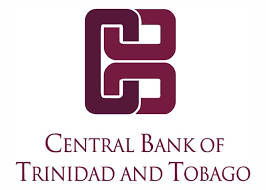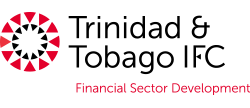The concept of Financial Technology, or Fintech, is broad – spanning various segments of the financial sector including payments, lending, investment management and advice. Many of the Fintech developments occurring in the domestic space have been in payments, and the Central Bank of Trinidad and Tobago (Central Bank/Bank) in collaboration with the other domestic regulators, is doing its part to promote Fintech locally.
 Fintech brings with it many potential benefits for businesses, consumers and the economy as a whole. For the consumer, Fintech can benefit those who do not have a bank account but have a mobile device, and access to internet.
Fintech brings with it many potential benefits for businesses, consumers and the economy as a whole. For the consumer, Fintech can benefit those who do not have a bank account but have a mobile device, and access to internet.
For e-commerce businesses, there are opportunities for using Fintech for those that are either unable to obtain a banking relationship to accept payments online for goods and services sold, or where the cost to do so is high. Moreover, the use of Fintech as a tool to upgrade traditional processes and legacy systems may lead to enhanced efficiency that benefits everyone – making the processing of transactions faster, lowering costs, and increasing access and convenience.
The Central Bank is seeking to harness these benefits, while at the same time ensuring that the risks that Fintech may pose are appropriately mitigated. The Bank is of the view that Trinidad and Tobago should embrace all Fintech that are safe, efficient, understood and legal. As highlighted in the previous Fintech Digest, the Bank is developing comprehensive payments system legislation to allow a wider range of Fintech solutions to be accommodated safely in the space. To this end, the E-money Issuer Order was effected in 2020 and allows for persons – other than financial institutions licensed under the Financial Institutions Act Chap. 79:09, to issue e-money. The Bank has received a few applications to date.
In this article, the Central Bank highlights the Regulatory Innovation Hub as the mechanism for engaging with Fintech firms; the Fintech products on which guidance on the regulatory and supervisory requirements are being sought; and some key learnings and considerations for Fintech firms seeking to apply for approval of their products or services via the Hub.
Joint Regulatory Innovation Hub

The Hub was launched as a dedicated point of contact for Fintech firms to simultaneously engage with the three authorities – Central Bank, the Trinidad and Tobago Securities and Exchange Commission (TTSEC) and the Financial Intelligence Unit of Trinidad and Tobago (FIUTT), to make enquiries and seek regulatory guidance on their innovative products and services. The facility is available on the Bank’s website. It should be noted that the Hub does not provide funding, guidance on business plans or processes or no-objection letters, and does not facilitate the testing of products or services.
As an information-rich space, the Hub is equipped with links to all the relevant legislation, regulation and guidelines for Fintech firms seeking to enter the financial space. It allows the regulators to obtain a better understanding of the innovative products and services being proposed by the entities, and whether such products and services are eligible for registration under existing legislative framework.
Another key feature of the Hub is that it facilitates the electronic submission of applications and supporting documents by Fintech firms seeking approval of their products or services, or entities wishing to be registered as an E-Money Issuer (EMI). All applicable forms and information on registration requirements are available at https://www.central-bank.org.tt/fintech/innovation-hub and Fintech firms are encouraged to visit the Bank’s website. Importantly, Hub applications are only considered valid when applicants have completed the form thoroughly and submitted all the supporting documentation required therein, as well as, paid the required application fee.
In assessing the entities engaging the Hub to date, most are primarily seeking guidance on the regulatory requirements to launch their respective products to operate in the space. All applications to date are concerned with e-money issuance in accordance with the E-money Issuer Order, 2020. Generally, these solutions are based on the issuance of an e-wallet to store the e-money, and to conduct transfers and payments – including person to person, person to business, business to person, business to business. The Hub has also received a number of enquiries regarding virtual assets and virtual asset services. The legislation to accommodate these safely into the space is currently being developed.
Key Learnings to Date
The Bank has found that there is a need for entities to familiarise themselves more with the regulatory requirements for approvals such as those specified in the EMI Order, the anti-money laundering/counter terrorist financing legislation (AML/CFT) regulations and guidelines, the Corporate Governance Guidelines, the Fit and Proper Guidelines and the Outsourcing Guidelines. Fintech firms wishing to bring innovative products or services to the market are encouraged to visit the Hub to get a clear understanding of the regulatory requirements and expectations. Persons can also email innohubtt@central-bank.org.tt or call 1 868 621 2288 ext. 2720/5015/5009 if they have questions.
It is important to note that detailed and complete information and documents are critical for timely and efficient processing of the application and to avoid undue delays in the registration process. As part of the application, fintech firms should ensure that the following are included and addressed as part of their submissions to the Central Bank:
- Clear governance arrangements with documentation to assess the fitness and propriety of the Board of Directors, Senior Management and the acquirers, significant and controlling shareholders.
- AML/CFT compliance programmes that adequately consider the nature, size and complexity of the Fintech firm business operations, the products and services offered, and its targeted customer base along with a comprehensive ML/TF risk assessment.
- Adequate and Appropriate Information and Communications Technology Risk Management Framework. Fintech solutions by their nature are highly dependent on technology for service delivery, the submission of clear, complete and accurate information on how technology related risks are managed is critical. The EMI Order in particular describes the areas, at a minimum, where the entity is expected to implement internal controls commensurate with the nature and extent of risk related to their financial product or service, business model and operations.
In conclusion, the Central Bank encourages entities seeking to submit an application via the Hub to ensure that the requisite form is completed fully, application fees are paid and detailed documents are submitted in support of the application. For the application to be valid, these 3 criteria must be met. Further, persons must familiarize themselves with the requisite laws, regulations and guidelines to ensure that they meet the regulatory and supervisory requirements. Those in need of support with the application process can contact: innohubtt@central-bank.org.tt
Also, for more information on the Central Bank’s approach to Fintech, feel free to go to https://www.youtube.com/watch?v=7uhbGFwDTGo to view the Joint Select Committee on Finance and Legal Affairs (JSC) proceedings held on March 18, 2022 where the Central Bank Governor and other Bank representatives along with representatives from the TTSEC, FIUTT and the Ministry of Finance discussed the regulatory framework for the development of financial technology (FINTECH) and e-payments.
Read the full version of the FinTech Digest HERE or click HERE to access our other articles.
For more information, contact the TTIFC HERE
